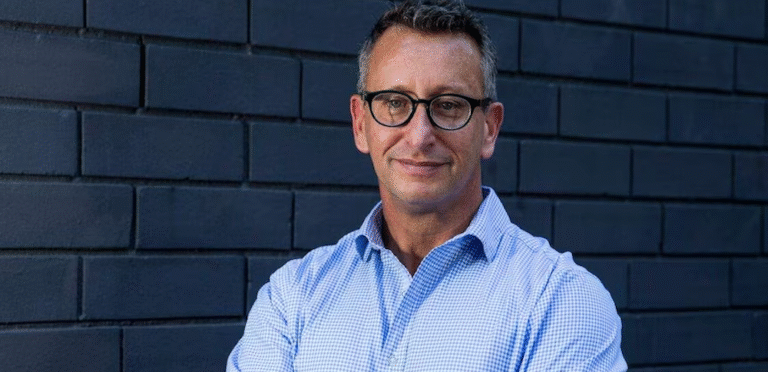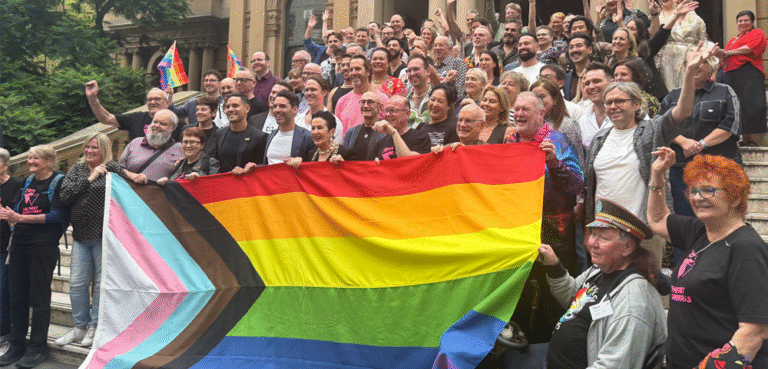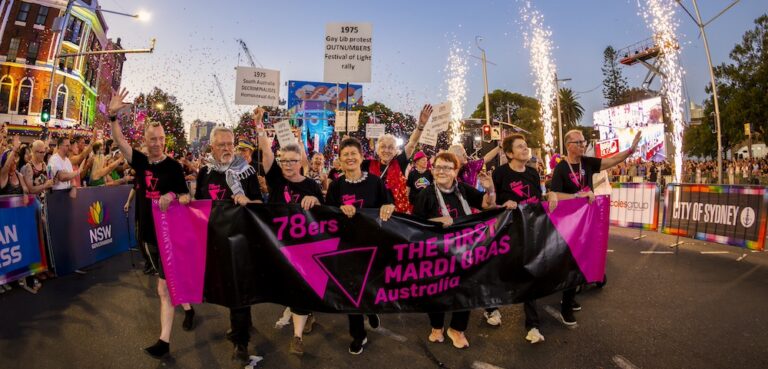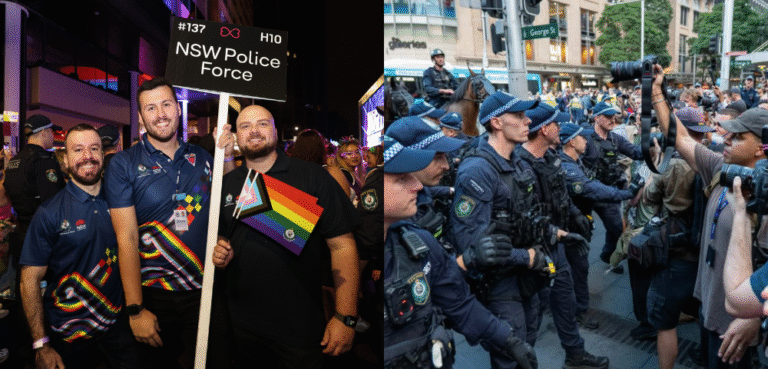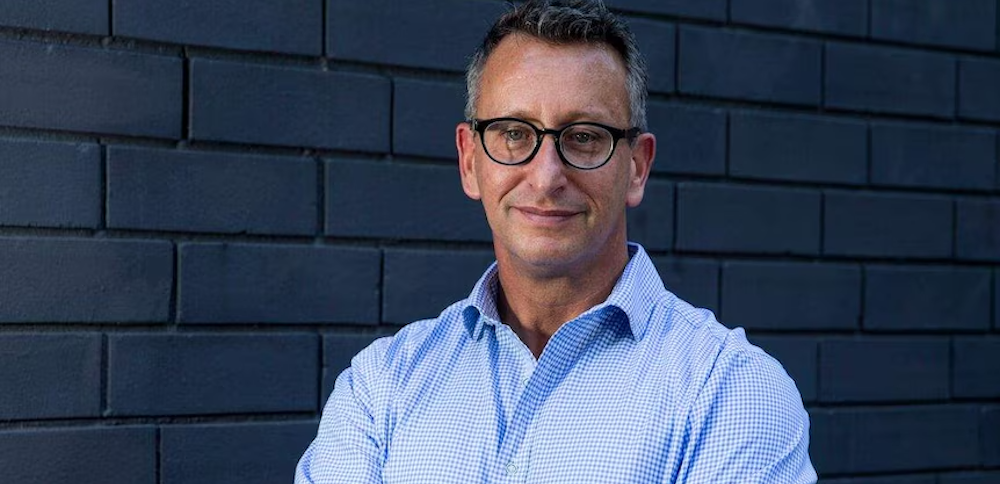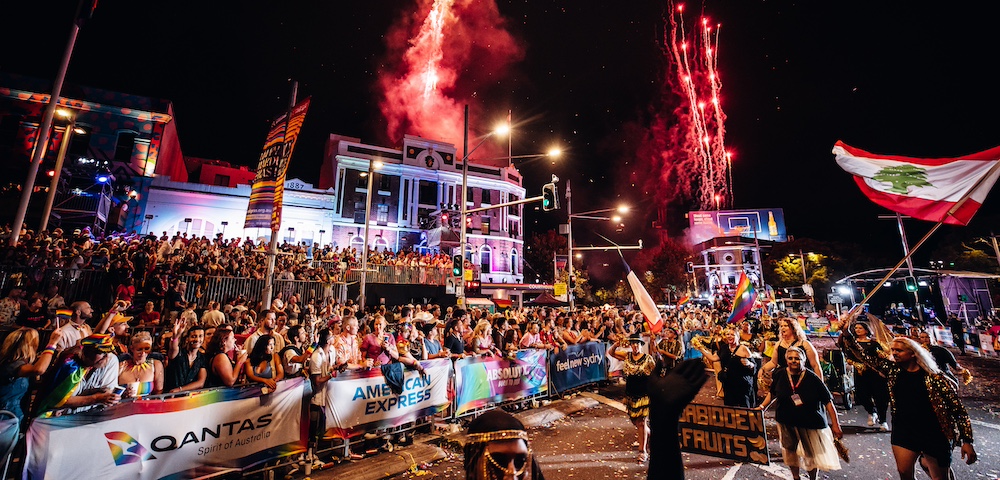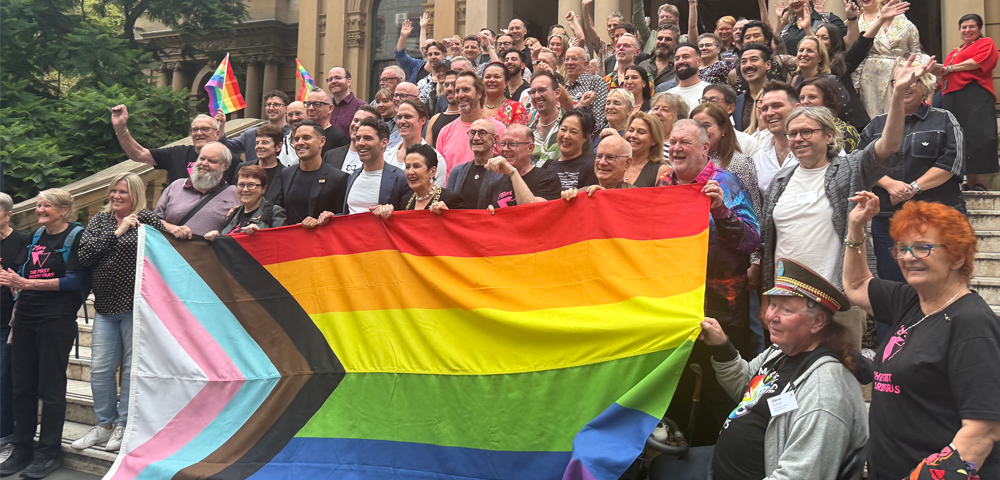
Jacki Weaver goes it alone
Two years ago Jacki Weaver was chipped crystal: beautiful and damaged. In February of 2001 only a few months had elapsed since the death of gay director Richard Wherrett, her onetime lover and long-time friend.
A lot has happened in the intervening months, including Weaver’s fifth marriage and starring turns in two big theatrical successes (Last Cab To Darwin and Last Of The Red Hot Lovers).
Yet Weaver retains a fragile edge, especially when reminded of Wherrett. I don’t think I’ll ever get over it, she said, sitting in the foyer of the Stables Theatre.
Her healing balm has been, and continues to be, her brilliant career. Weaver is about to star in her first solo show, Robert Hewett’s The Blonde, The Brunette And The Vengeful Redhead, which is co-directed by her husband Sean Taylor. Weaver met the South African actor and director when they starred together in David Williamson’s Soulmates in early 2002 and Weaver was smitten.
I knew he had the eye for me from the beginning, Weaver said. I thought, -˜He’s dangerous.’ He was a charmer from the off.
I was very much involved with my boyfriend at the time and still love and respect him very much. But after six months of being with Sean I just wanted to be with him for all time.
The pair married late last year -“ the fourth time Weaver has fallen for a leading man.
Yes, she said, then chuckled. Don’t get your meat where you get your bread. You couldn’t say that to Women’s Weekly.
Sean Taylor also proved to be a salvation as a character who appeared late in the play of Weaver’s life. When ABC TV featured Weaver in their Australian Story series in June last year, much of the tale focused on Wherrett, whom Taylor had never met.
It’s probably a good thing for me that I’ve been able to get on with my life a bit better because Sean’s someone quite separate, Weaver said. Not that he’s not friends with all my friends now who were Richard’s friends, but it’s therapeutic in one way to start afresh.
The fresh start includes Weaver’s first performance in a one-person show, playing an old woman, a young boy, a lesbian doctor and a male character, among others.
I’ve never really fancied a one-woman show, because I get a bit lonely -¦ Weaver said. And I’ve always loved the sociability of plays. I love other actors so much -¦
There’s been a few suggestions over the years. Nick Enright always used to say, -˜I’m gonna write you a play,’ but he didn’t live long enough. Richard wrote something too in the year before he died, a one-woman show, that he wanted me to do.
It was Hewett’s play that caught Weaver’s eye, however, the tale of a fatal incident in a suburban shopping centre told through seven different perspectives, including a lesbian doctor’s (Weaver’s favourite).
There were several ways to go with that, she said. There are certain stereotypes aren’t there? Ultimately of course a person’s sexuality is going to inform their psyche to a degree. But in the end, people are people.
In the end this woman is a complete invention of my own. I haven’t based her on anyone. I started basing her on a few different gay women I know and decided, no, I’d make her something right out of my own head.
There was a nervousness about the issue, an unnecessary response from a woman who has more than earned her gay stripes. This four-foot-eleven dynamo once megaphone-screamed at Fred Nile, Jesus loves everybody! -“ from her position as Queen of the Fairies in the 2000 Mardi Gras parade.
Weaver smiled when reminded of her ridiculous gay world. My mother used to say, -˜The only straight men you know are your father, your brother and your son. And possibly your husband.’
